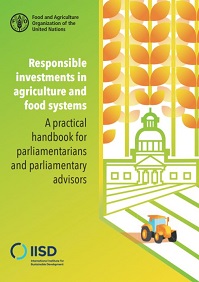Location
Established in 1990, IISD is an independent, non-profit organisation that provides practical solutions to the challenge of integrating environmental and social priorities with economic development. We report on international negotiations, conduct rigorous research, and engage citizens, businesses and policy-makers on the shared goal of developing sustainably.
The institute has offices in Canada, Switzerland and the United States, and operates in over 70 countries around the world. As a registered charitable organization in Canada, IISD has 501 (c) (3) status in the U.S. IISD receives core operating support from the Government of Canada, as provided through the International Development Research Centre (IDRC) and the Province of Manitoba. The institute also receives project funding from numerous governments inside and outside Canada, United Nations agencies, foundations and the private sector.
Our 2014-2019 Strategic Plan builds upon IISD’s core strengths in advancing integrated, multidisciplinary and leading-edge perspectives and real-world solutions to sustainability. The strategy consolidates different IISD work streams in a focused and integrated manner. A core purpose of the strategy is to build a single, coherent institution capable of providing integrated and holistic solutions to sustainability challenges. Our brochure provides a snaphot of IISD's strategy and the work of our programs.
Members:
Resources
Displaying 1 - 5 of 14From Land Degradation to Land Restoration
Key Messages and Recommendations
• Combating desertification and land degradation while mitigating the effects of drought can secure long-term socio-economic benefits for people living in drylands and reduce their vulnerability to climate change.
• Land degradation neutrality (LDN) is an approach that counterbalances the expected loss of productive land with the recovery of degraded areas.
• Land tenure insecurity, especially for women, often prevents farmers from adopting sustainable land management practices
Evaluación del Marco de Políticas Mineras Panamá
Con el apoyo del Gobierno de Canadá, el Foro Intergubernamental sobre Minería, Minerales, Metales y Desarrollo Sostenible (IGF) está trabajando con una selección voluntaria de sus Estados miembros para ayudarlos a implementar prácticas consistentes con el Marco de Políticas Mineras (MPM) del IGF.
Responsible investments in agriculture and food systems – A practical handbook for parliamentarians and parliamentary advisors
This Handbook provides a comprehensive and systematic overview of the role that Parliamentarians and Parliamentary Advisors can play in the creation of reliable, coherent, and transparent “enabling environments” in the range of areas related to investment in agriculture and food systems. It does so through guidance notes, examples of good practices, and very practical indications, and sets out key stages of processes and mechanisms for MPs and advisors to consider while promoting responsible investment in agriculture and food systems.
Tirer parti des normes de durabilité volontaires pour promouvoir l’égalité des sexes et l’autonomisation des femmes dans le secteur de l’agriculture
Note de synthèse : L’agricultrice et son époux : innovations juridiques pour les femmes dans l’agriculture contractuelle
Date: février 2019
Source: Foncier & Développement
Par: Sarah Brewin, Sophia Murphy
L’IISD (International Institute for Sustainable Development) publie sa 8ème note de synthèse de la série « Investissements dans l’agriculture » : « L’agricultrice et son époux : Innovations juridiques pour les femmes dans l’agriculture contractuelle ».






